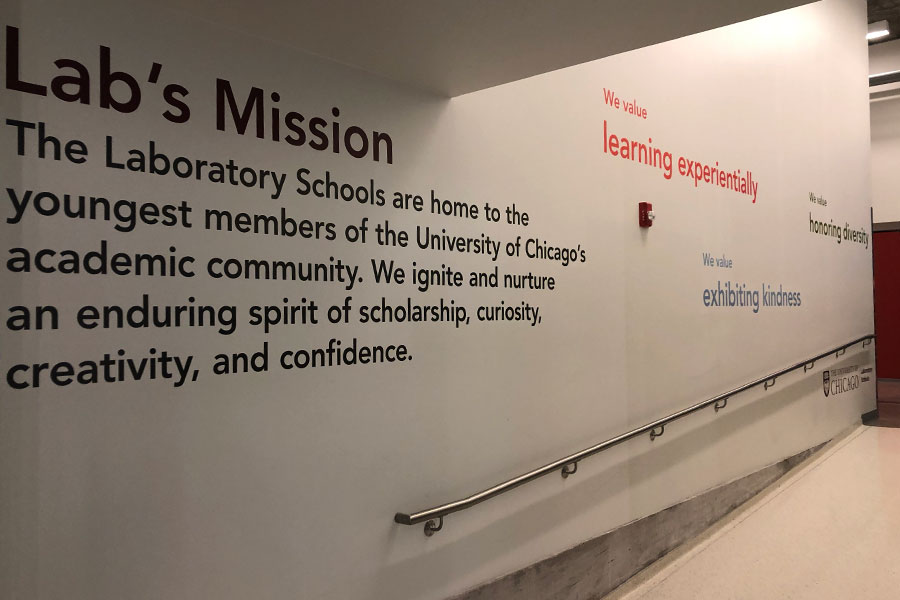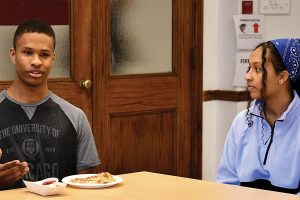Community, administration pledge to fight racism
Part of Lab’s mission statement written across its halls is to honor diversity. The administration’s reaction to the racist incident determines whether the administration leaves up to that statement.
January 28, 2020
The community is listening and acting. Prompted by an open letter to the community and public acts of racism, administrators and student leaders have hosted open forums and shared commitments to address concerns about diversity, equity and inclusion.
Black Students’ Association leaders read an open letter at the Martin Luther King Jr. assembly Jan. 16, wherein, among other demands, they urged the administration to take specific action to address Lab’s climate of racism.
In addition to the letter, much of this initiative seems to have been triggered when a student posted a racist meme to social media in December. The student was suspended, but according to Sharon Williams, a Diversity Advisory Committee member who is also a college counselor, Lab has yet to develop a consistent policy for addressing racist behaviors, noting how past incidents weren’t often addressed transparently.
“When we talk about systemic racism or oppression, we have to think beyond the walls of Lab,” Ms. Williams said, adding that a lack of clear rules and responses to racist actions can institutionalize racism on campus.
She said, “It’s allowed to fester, and there’s no transparency in how these things are handled, and they’re not handled consistently.”
In a letter sent to the entire Lab community Jan. 21, the administration outlined several specific courses of action underway to improve the school’s climate. Examples include hiring new diversity, equity and inclusion staff; hosting listening sessions; and working with the university to recruit faculty and staff of color.
All members of the Lab community are invited to an open conversation around racial equity and racial literacy sponsored by the Black Family Forum and the Parents’ Association diversity, equity and inclusion committee Feb. 3 from 6:30-8 p.m. in Judd C116. Director Charlie Abelmann, high school Principal Paul Beekmeyer and Director of Diversity, Equity and Inclusion Priyanka Rupani attend for the discussion and to answer questions.
According to Ms. Williams, exposure to DEI-adjacent issues should begin at lower and elementary-school levels, but as of today, there’s no standardized curriculum. This, she said, allows racist behavior to be normalized.
“This has to be an institutional commitment that starts with Nursery 3. It should not be an issue where, depending upon what teacher you get or which class you take, you’ll be exposed to the basic concepts that revolve around diversity, equity and inclusion work,” Ms. Williams said. “This should be a hallmark of every Lab student’s experience.”
BSA Public Relations chair Destiney Williamson said she believes the letter was impactful on an individual basis. However, she isn’t confident the administration will follow up with sustained effort.
“I know that our voices have been heard, but when it comes to what we will see in terms of action, I can’t say that I’m optimistic,” Destiney said. “I’ve had this conversation several times with several administrators throughout the past several years, and I haven’t seen any action.”
Additionally, the BSA’s letter urged faculty members to foster safe classroom environments for students of color. These students, they said, should not be forced to view triggering material without warning or speak for their entire race during in-class discussions. On Jan. 24 the curriculum committee released a letter pledging to address these issues.
They wrote, “We all have a responsibility and an obligation to ensure that every student sees themself in our curriculum and that every member of our community feels welcome and respected.”

































































